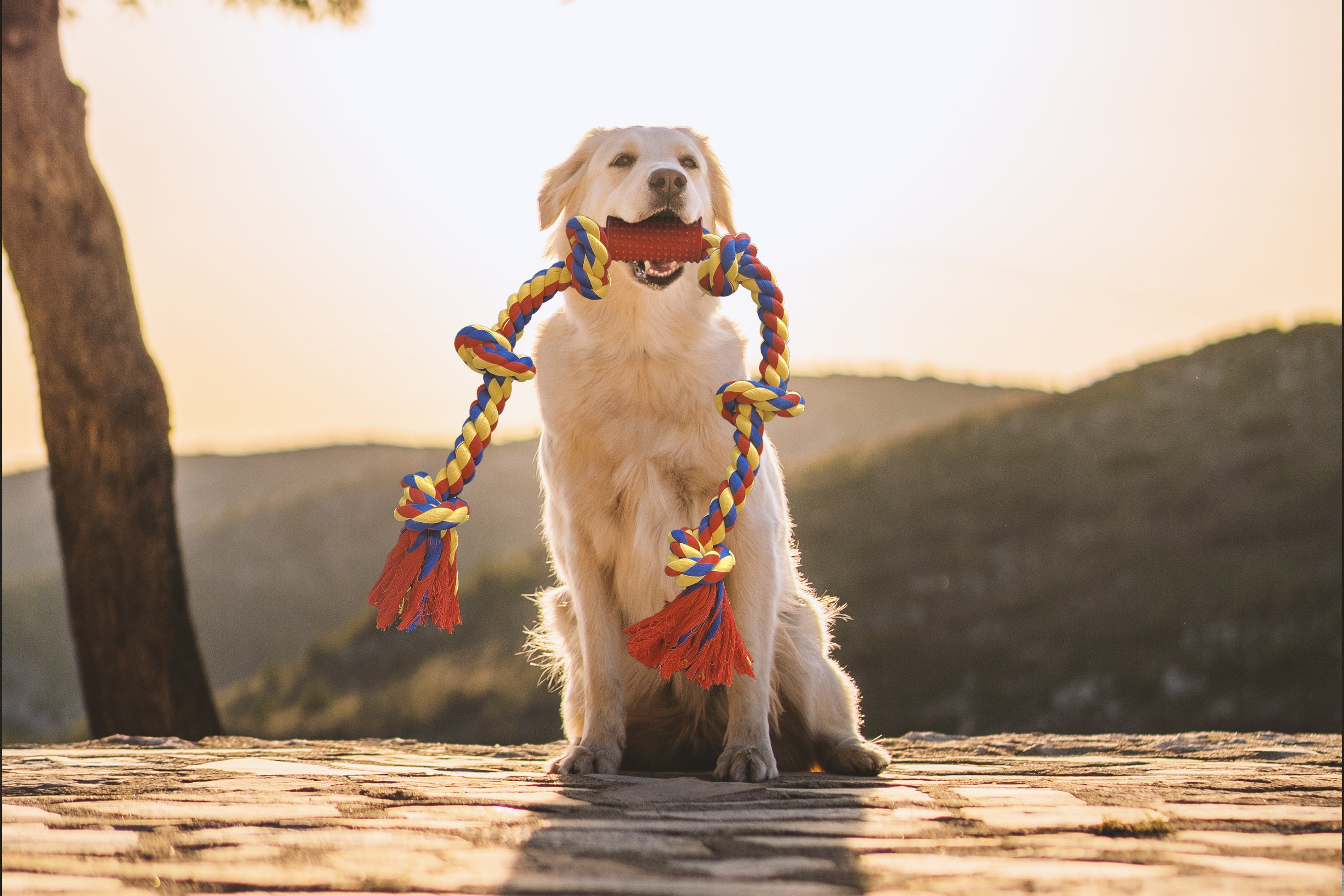Sharing the Sleep Space with Large Dogs: Benefits, Considerations, and Tips
- by Chris Davis
-

Introduction
Sharing your sleep space with your beloved large dog can be a rewarding and comforting experience. The close bond between humans and their canine companions often extends to nighttime, where both parties can find solace and companionship. However, before inviting your furry friend onto your bed, it's important to understand the benefits, considerations, and best practices for sharing the sleep space. In this comprehensive guide, we'll explore the joys of sharing your bed with a large dog, address common concerns, and provide useful tips for a harmonious co-sleeping arrangement.
1. The Benefits of Sharing the Sleep Space
Enhanced Bonding and Security
Sharing your bed with a large dog can strengthen the bond between you and your furry friend. The physical closeness and warmth create a sense of security and companionship, which can promote feelings of trust and loyalty.
Reduced Anxiety and Stress
Dogs are pack animals by nature, and being close to their human family during sleep can alleviate anxiety and stress. The soothing presence of your large dog can have a calming effect, helping you unwind and achieve a more restful night's sleep.
2. Considerations Before Sharing the Sleep Space
Size and Space
Large dogs require ample space to stretch out and get comfortable. Consider the size of your bed and the availability of enough room for both you and your dog to move freely without feeling cramped. Ensure there is enough space for everyone to sleep comfortably throughout the night.
Allergies and Hygiene
If you or your partner have allergies or sensitivities, it's important to assess the impact of sharing your bed with a dog. Regular grooming, bathing, and keeping your dog's bedding clean can help minimize allergens and maintain good hygiene.
3. Establishing Boundaries and Routines
Designating a Specific Area
To maintain order and establish boundaries, designate a specific area on your bed where your dog can sleep. This helps prevent them from encroaching onto your personal space and ensures everyone has their designated sleeping spot.
Using a Dog Bed or Crate
Consider providing a comfortable dog bed or crate within your bedroom as an alternative sleeping option for your large dog. This gives them a sense of security while still being in close proximity to you.
4. Maintaining a Peaceful Sleep Environment
Bedtime Rituals
Establish a consistent bedtime routine that includes activities such as a calming walk, playtime, or a soothing massage for your dog. These rituals can signal that it's time to relax and prepare for sleep, promoting a peaceful environment for everyone.
White Noise and Nightlights
If your dog is sensitive to outside noises or easily startled, consider using white noise machines or soothing music to create a peaceful sleep environment. Additionally, nightlights can provide a sense of security and help prevent accidents during nighttime movement.
5. Addressing Challenges and Concerns
Interrupted Sleep
Some large dogs may toss and turn during the night, potentially disrupting your sleep. If this becomes a concern, consider providing your dog with their own comfortable bedding adjacent to your bed, allowing them to have their sleeping space without disturbing you.
Potential Health Issues
Sharing the sleep space with your large dog may present challenges if either of you has underlying health issues. It's important to consult with a veterinarian if you or your dog experience discomfort, allergies, or any other health-related concerns.
FAQs
Q1: Will sharing my bed with a large dog affect my sleep quality? A1: It depends on various factors, including personal preferences and sleep habits. Some people find comfort in sharing the bed with their dog, while others may experience disruptions. Establishing boundaries and routines can help promote better sleep for both parties.
Q2: Can sharing the bed with a large dog lead to behavioral issues? A2: Sharing the bed with your dog is unlikely to cause behavioral issues on its own. However, if your dog exhibits behavioral problems or becomes possessive over the bed, it's important to address the underlying causes and seek professional guidance if necessary.
Q3: How can I prevent my large dog from taking up too much space on the bed? A3: Designating a specific area or providing a comfortable dog bed nearby can help prevent your dog from taking up excessive space. Regular training and reinforcement of boundaries can also assist in maintaining personal space.
Q4: Can sharing the bed with a large dog worsen allergies? A4: If you have allergies, sharing the bed with a large dog can exacerbate symptoms. Regular grooming, washing bedding frequently, and using hypoallergenic materials can help minimize allergens and reduce potential allergic reactions.
Q5: What if my large dog prefers their own sleeping space? A5: Every dog is unique, and some may prefer their own sleeping area. Consider providing a comfortable dog bed or crate nearby so that your dog can have their own space while still being close to you.
Conclusion
Sharing the sleep space with a large dog can be a fulfilling and comforting experience, deepening the bond between you and your furry companion. By considering the benefits, setting boundaries, and addressing any concerns, you can create a harmonious co-sleeping arrangement that promotes a restful night's sleep for both you and your dog. Remember to prioritize personal space, hygiene, and individual preferences to ensure a peaceful and rewarding sleep environment for everyone involved.
Note: It's always recommended to consult with a veterinarian for personalized advice regarding your dog's specific needs and considerations.




